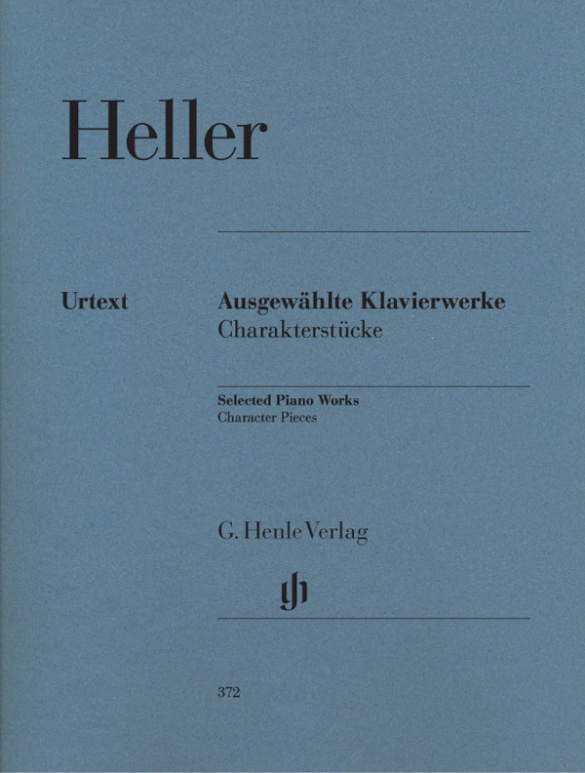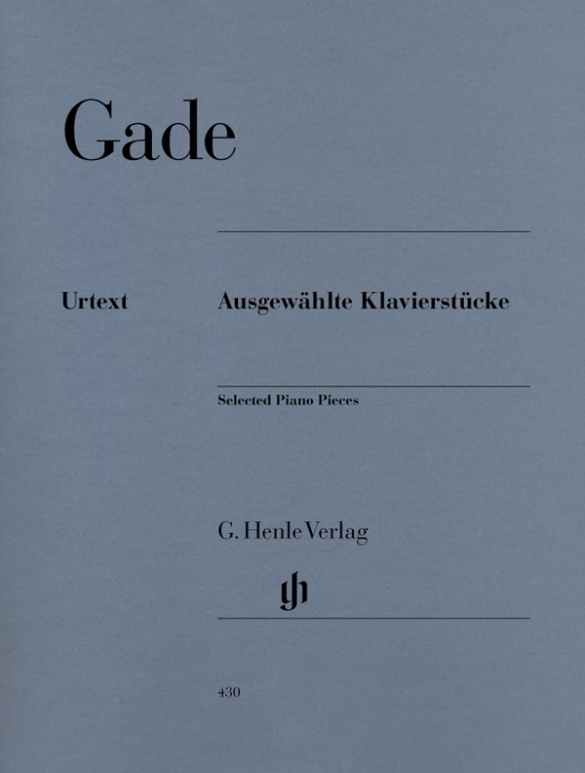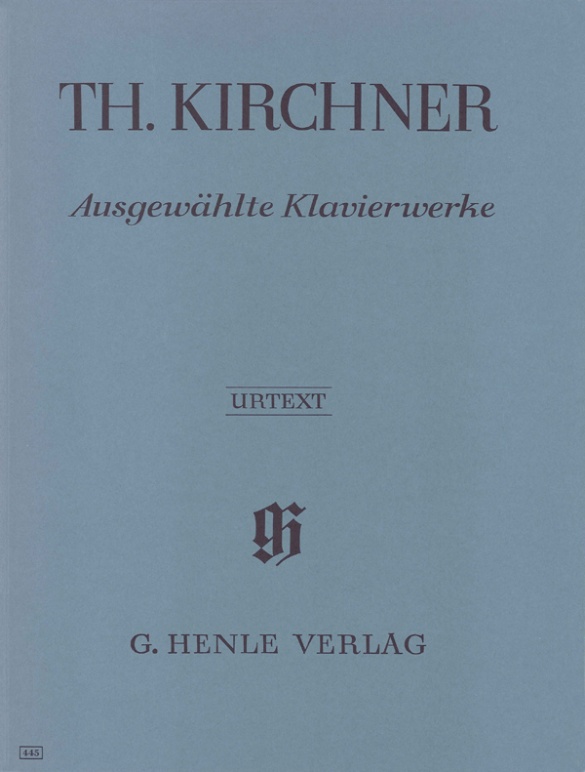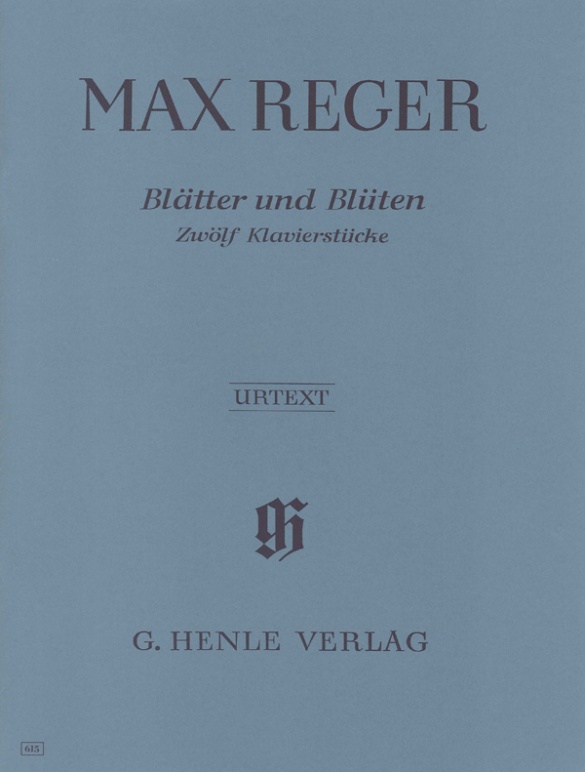Stephen Heller
Oeuvres choisies pour piano (Charakterstücke)
Ce recueil propose une série de petites pièces délicates pour piano de Stephen Heller, un compositeur du 19e siècle. La plupart d’entre elles ne sont que de difficulté moyenne, mais présentent toujours un intérêt musical particulier. En 1853, Heller écrivit à son éditeur qu’il «n’avait pas cherché à faire beaucoup de mots», mais qu’il voulait esquisser «en peu de traits, quelque chose de sérieux, de sensé». Entièrement dédié à la «pièce de caractère» qui constitue une grande part de la production de Heller, ce recueil offre un panorama de l’évolution artistique de ce compositeur. Parmi ces œuvres figurent des pièces telles que «La petite mendiante», «Après une pause revigorante», ou «L’enfant en pleurs», c’est-à-dire des scènes qui expriment et évoquent une atmosphère particulière. Comme l’écrit Ursula Kersten dans la préface, la musique de Heller «laisse déjà entrevoir l’impressionnisme» et ce compositeur mérite d’être découvert grâce aux morceaux du présent recueil.
CONTENU/DÉTAILS
CONCERNANT LE COMPOSITEUR
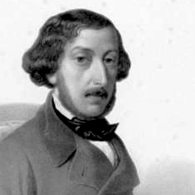
Stephen Heller
Compositeur et pianiste de l’ère romantique originaire de Hongrie. Son œuvre est presque entièrement destinée au piano et comprend entre autres des pièces de caractère, des variations, des danses, des paraphrases ainsi que des recueils d’études à vocation didactique.
| 1813 | Né le 15 mai à Pest. Il reçoit dès son plus jeune âge des cours de musique auprès de Ferenc Bräuer et d’Alajos Czibulka. |
| 1824–28 | Des études à Vienne auprès de Carl Czerny et d’Anton Halm complètent sa formation musicale. |
| 1829 | Il entreprend en compagnie de son père une tournée à grands frais à travers des parties de l’Europe. À Varsovie, il rencontre pour la première fois Frédéric Chopin. |
| 1830–38 | Affecté par une maladie, Heller doit mettre un terme à sa tournée à Augsbourg où il séjourne et bénéficie du soutien, en autres, du comte Friedrich Fugger-Kirchheim-Hoheneck. Il en résulte une intense correspondance avec Robert Schumann qui disserte dans la Neue Zeitschrift für Musik sur ses compositions. |
| à partir de 1838 | Il rallie Friedrich Kalkbrenner à Paris. C’est là qu’il rencontre Hector Berlioz et Franz Liszt et travaille en tant que professeur de piano. |
| à partir de 1840 | Heller publie les Recueils d’études op. 16 et op. 45–47 ainsi que divers articles musicaux. |
| à partir de 1850 | Un certain nombre de compositions voient le jour parmi lesquelles les «Promenades d’un solitaire» op. 78, 24 Préludes op. 81 et «Nuits blanches» op. 82. Ses œuvres connaissent un succès international et sont données en concert par Anton Rubinstein, Clara Schumann et d’autres. |
| à partir de 1870/71 | À cause de la guerre franco-allemande Heller déménage en Suisse où il compose ses «Freischütz-Studien» op. 127 ainsi que ses Variations d’après Beethoven op. 130 et 133. À la fin de la guerre il retourne à Paris. |
| 1884 | Il meurt à Paris le 14 janvier. |
About the Authors
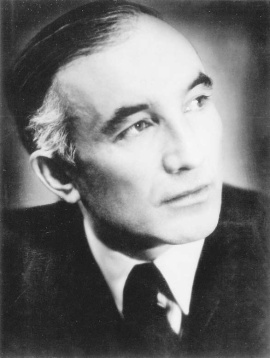
Hans-Martin Theopold (Doigtés)
Prof. Hans-Martin Theopold, was born to a pastor’s family in Detmold on 22 April 1904, the youngest of five children. Even as a child he often played the organ in the “Marktkirche” and soon began to take piano lessons with Theodor Vehmeier. At the age of 17 he made his debut at the Landestheater in Detmold with Ludwig van Beethoven’s Piano Concerto in C major under Friedrich Quast (Herford). Following the successful completion of his schooling at the Gymnasium Leopoldinum in Detmold, he went on to study music and piano (main subject): from 1922–23 at the “Württembergische Hochschule für Musik” in Stuttgart (with Max Pauer, 1866–1945) and then from 1923–1928 at the “Staatliche Akademische Hochschule für Musik” in Berlin-Charlottenburg (with Richard Rössler, 1880–1962, and Waldemar Lütschg, 1877–1948). After completing his piano studies (graduating with “very good”) in 1928, he began an active solo career both at home and abroad (USA, Switzerland, Scandinavia, the Baltic states, the Balkans). As a member of the Chamber Music Association of the State Opera in Berlin (from 1933) he also gave countless chamber music concerts, including ones with his violin partner Gustav Havemann (1882–1960).
In the 1930s, audiences and the press alike raved about Theopold’s extraordinary gifts as a pianist: “This young player has it in him to soon become one of the best players in Germany. A superior technique, a wonderful singing piano tone, the strength of a Titan, but not at all hard due to the incomparably gentle elasticity of his touch” [Münchener Zeitung, 21 November 1933]. – “H.M. Theopold gave convincing proof of his splendid pianistic ability in an extremely gripping sonata with a modern idiom by Alban Berg, but predominantly in Schubert’s […] Wanderer Fantasy, which he played with a polished technique and creative power” [Weser-Zeitung, 21 December 1932]. Theopold was awarded several prizes, including the “Grotrian-Steinweg-Preis” in 1928.
In 1937 Theopold became a teacher for the piano (main subject) at the “Bayerisches Staatskonservatorium der Musik” in Würzburg. In 1939 he married Irene Tatjana Wülfing, who was from Moscow. From 1943 he became head of the piano master-class at the “Nordische Musikschule” in Bremen, although this was interrupted by the events of the war. Following his return from a prisoner of war camp, Theopold gave concerts and taught although he did not hold a permanent position. From 1955–1956 he was acting head of the piano master-class at the “Bergisches Landeskonservatorium” in Wuppertal, finally being appointed Professor for Piano on 1 April 1956 at the “Staatliches Institut für Schul- und Volksmusik” in Detmold, later at the “Nordwestdeutsche Musikakademie Detmold” (today “Hochschule für Musik Detmold”), where he taught for decades. On 30 September 1969 he retired. “His students extol his pedagogical gifts. […] Humour, charm, helpfulness and kind-heartedness moderate the strictness of his professional ethos as a musician and teacher” (Lippische Rundschau, 23 April 1969; see also: Lippische Landeszeitung 22 April 1969 on the occasion of Theopold’s 65. birthday: “Prof. Theopold, a modest but at the same time energetic man, is an enthusiastic teacher”). Theopold died in Detmold in 2000.
Contact with Günter Henle was established directly after the publishing house was founded, when Theopold thanked the publishers with great enthusiasm for its first Urtext editions. His extensive correspondence with the publishing house was bequeathed to the Lippische Landesbibliothek in 2014 to ensure its long-term accessibility to the public. The letters testify not only to Theopold’s great interest in musical sources and text questions but also to his initial strict refusal (!) of fingerings in text-critical editions such as these: “For fingerings are and remain something individual no matter what their quality” (letter to Günter Henle from 26 May 1949 {publishing house archives}). Günter Henle was not, however, to be swayed and stressed the necessity of fingerings in his Urtext editions: “It is better to publish the Urtext […] with fingerings that are not necessary for a few individuals, or that might even, I admit, be considered irritating here and there” (letter to Hans-Martin Theopold of 17 September 1953).
It was only in 1955 that Theopold accepted Günter Henle’s offer of contributing fingerings for an Urtext edition that was in the process of being prepared by way of trial. (HN 74, Schubert, Complete Dances for Piano, Volume 1). Following this, Theopold was commissioned to write the fingerings for nearly all of the publishing house’s new editions in quick succession. Günter Henle, himself a good pianist, greatly valued Theopold’s fingerings, and also the many suggestions regarding the musical text in question. In addition, Theopold was always very reliable, thorough and conscientious – something that is not unimportant with editorial work!
Thus to date Hans-Martin Theopold has provided the fingerings for the greatest number of Henle Urtext editions by far – 226 editions (!) in total.
We would like to thank Mrs Margot Theopold and the Hochschule für Musik in Detmold for their great support in providing biographical material.
G. Henle Verlag
Informations sur la sécurité du produit

G. Henle Verlag
Vous trouverez ici des informations sur le fabricant du produit.G. Henle Verlag e.K.
Forstenrieder Allee 122
81476 München
Allemagne
info@henle.de
www.henle.com
recommandations
autogenerated_cross_selling
Autres éditions de ce titre
Autres éditions de ce titre


